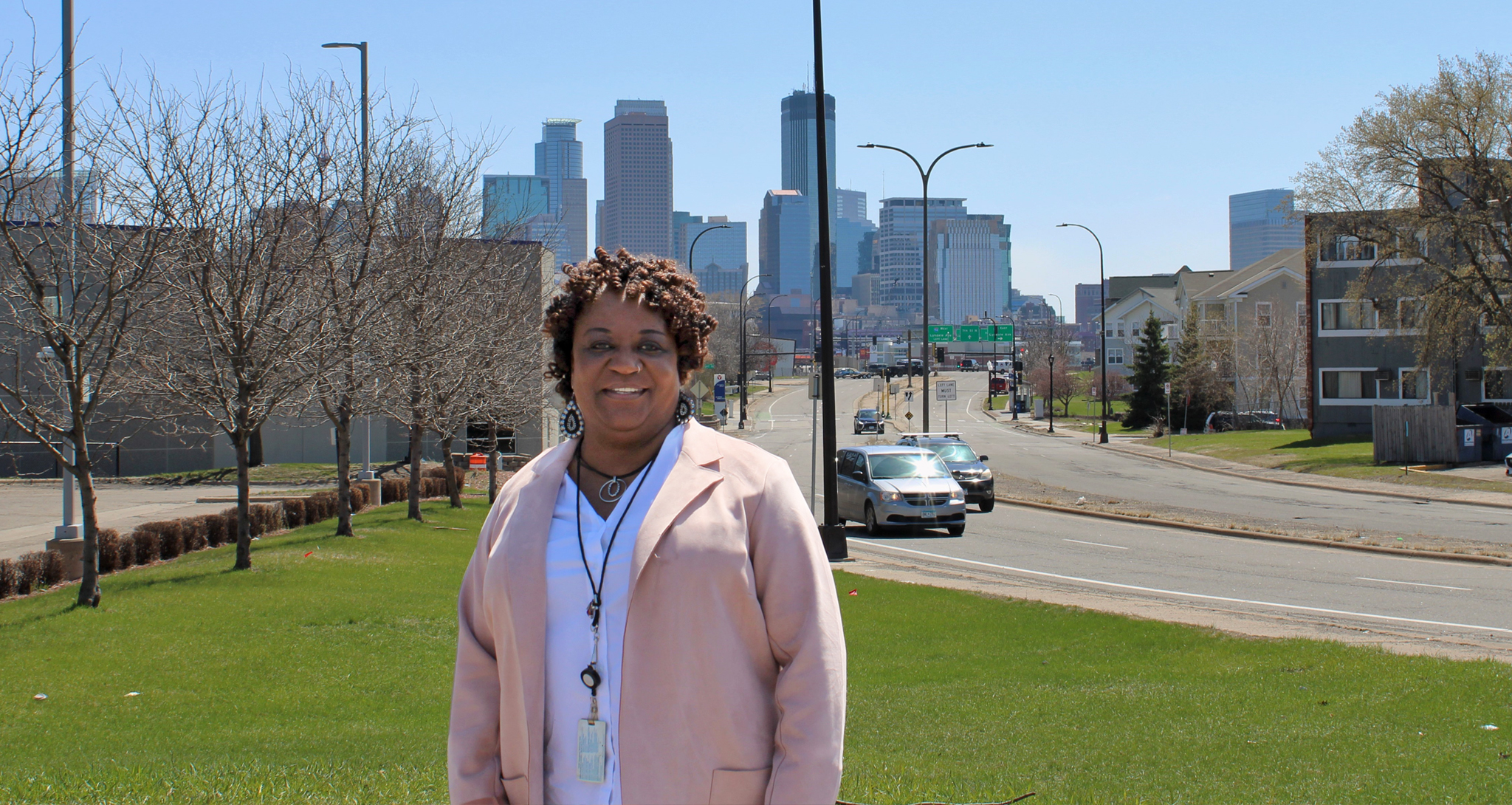

For 40+ years, Latisha Edwards dealt with many of the same issues she now helps people navigate. Today those experiences help her empathize with and advocate for clients.
“I was one of those women who were 16 and pregnant,” says Latisha. “I was 17 and had my first child.”
In her teens, Latisha also had a tumultuous relationship with her mom and experienced homelessness.
These challenges, though, motivated her to find a human services-oriented job. “Because I didn’t feel I had the support in my life, I wanted to help people who needed support,” she says.
For more than 10 years, Latisha worked as a nurse’s aide. First in a children’s mental health facility – where many of her clients were developmentally disabled or had traumatic brain injuries – and later in Hennepin County Medical Center’s intensive care unit. During those years, she thought about becoming a registered nurse, but ultimately realized, “This is not it. But how can I still help people?”
A few years later, a tragic experience made her next career step clear.
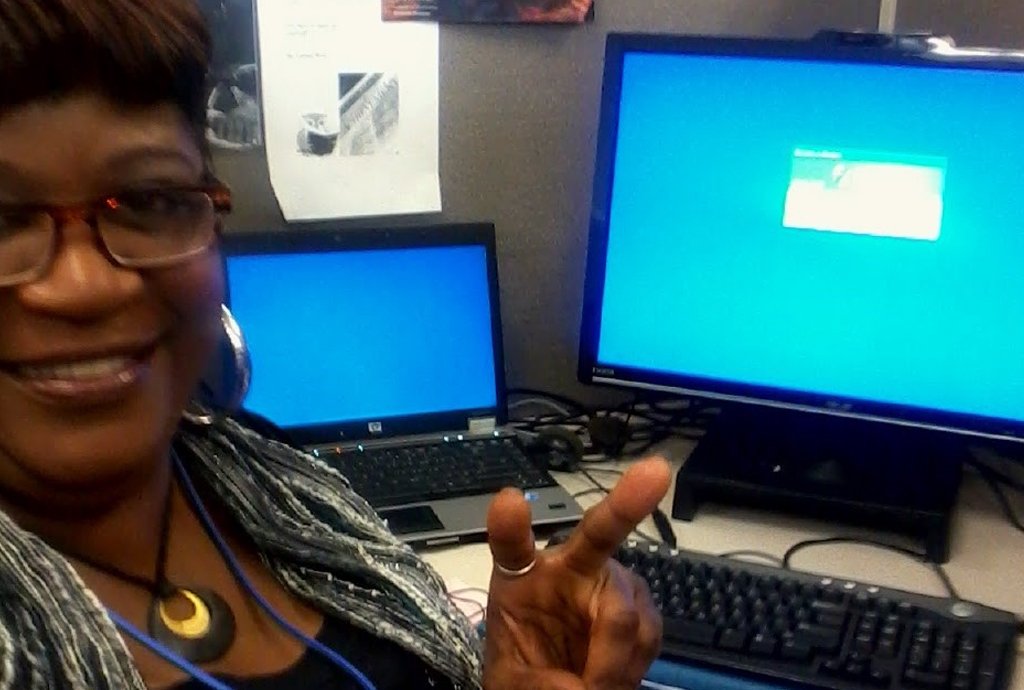
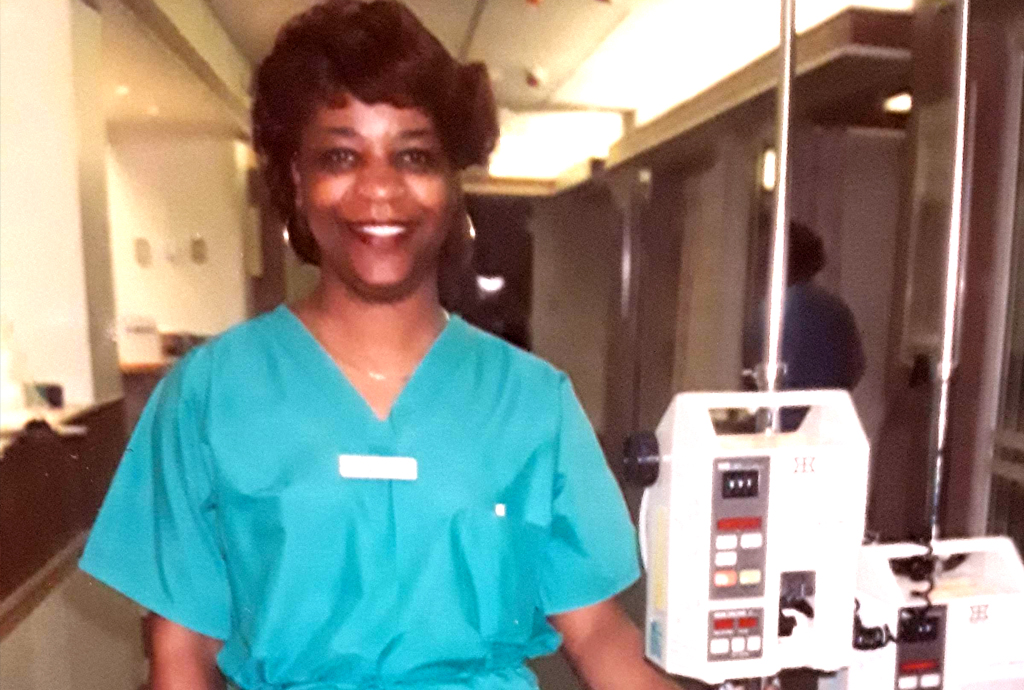
In 2001, Latisha was in her late 30’s. She was pursuing an associate degree in Human Services from Inver Grove Community College, a credential she hoped would allow her to continue to help people. She was also raising a 14-year-old daughter.
And she’d just married Warren – a man she’d known for 8 years. Warren had a young daughter, too.
Then, four months after their June 2001 wedding, doctors told the couple that Warren had stage four liver failure.
“They said that the only thing that was going to save him was a liver transplant, and that I should hope for the best but expect the worse,” Latisha says.
Afterwards, it took Latisha everything she had to make it through a day. “We had two little girls under 10 years old,” she says. “I was a student. And we had just bought a house. We skipped having a honeymoon and took the money and bought a house.”
“I thought, ‘What am I doing? What have I gotten myself into?’”
Over the next four years, Latisha made weekly trips to Mayo Clinic so Warren could receive treatment while he waited for a liver donor. She shouldered further responsibility, in 2005, when she began raising her infant granddaughter.
In September 2005, four months after Latisha adopted her granddaughter, Mayo Clinic called Warren for a transplant. “Here I go, 8-year-old, 4-year-old, 5-month-old – load up the car with the kids. He got the transplant,” Latisha says.
During those years, Latisha’s mental health got progressively worse.
“I had taken all this on, and it was too much,” she says, in retrospect. “Many days, I didn’t know what I was going to do.”
Latisha had grown up in a community with mental health stigma. So, instead of seeking help, “I did exactly what I was taught,” she says. “I didn’t talk about it.”
“But then, it got to the point where I would be fixing dinner or playing in the yard with my kids, and all of these thoughts would come rushing in. I would find myself crying, just unable to stop. The thing that got me to get help is that I felt I had no control over it, and I was scaring my kids,” she says. “I had to do something, not only for myself but also for those three little girls.”
Being a Human Services student also played into Latisha’s decision. “While taking classes in school, I saw myself and the struggles I was dealing with [in my mental health coursework],” she says.
Latisha found a therapist and a psychiatrist and began taking medication for depression and anxiety. She also started going to church and addressing her spirituality.
The experience piqued her interest in becoming a mental health professional. In 2007, she joined Cope, Hennepin County’s 24/7 mobile crisis response program, as a case manager assistant.
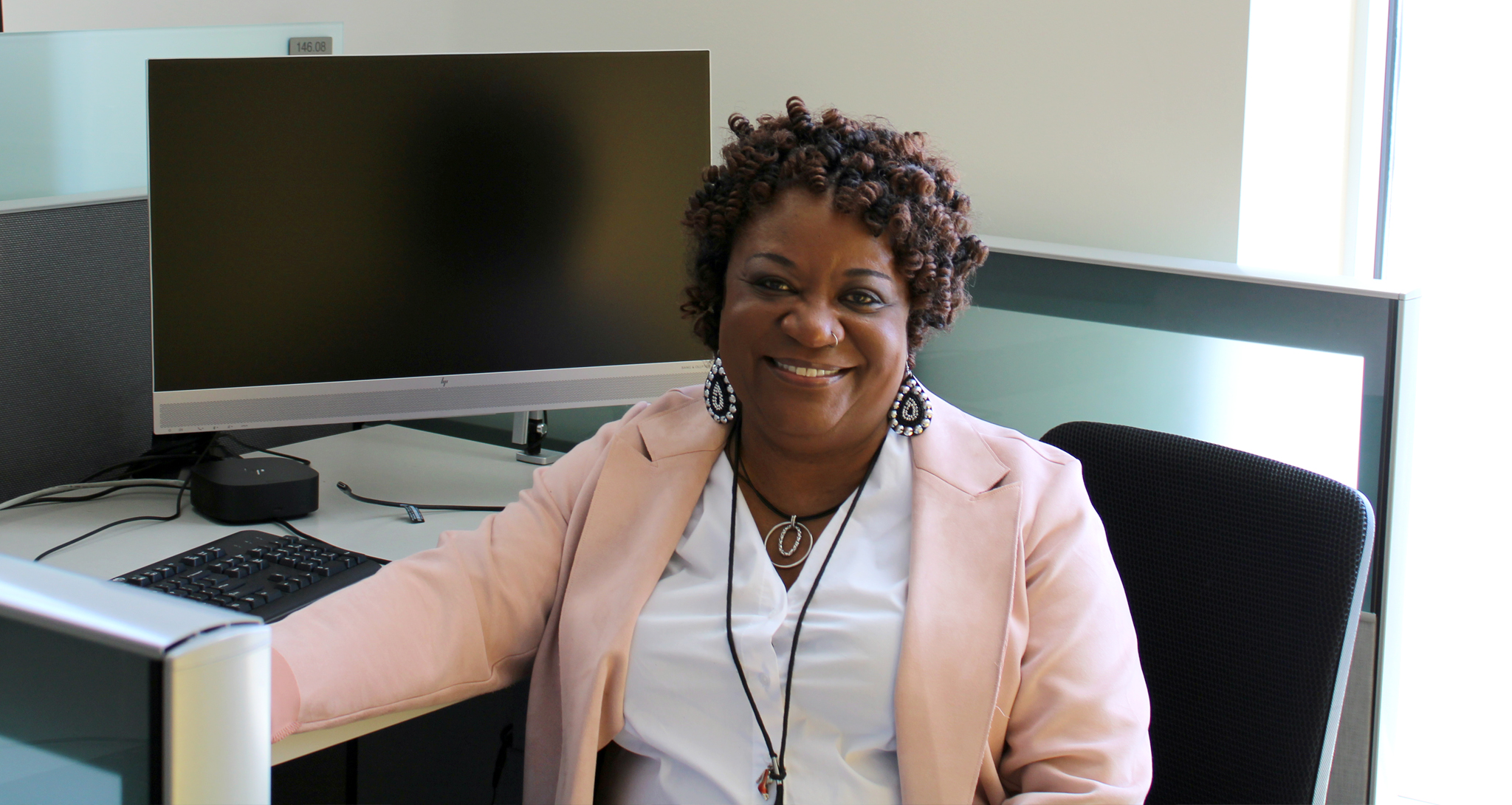
U.S. adults live
with a serious
mental illness,
like schizophrenia,
bipolar disorder, or
major depression,
Latisha has now worked with Cope for 16 years. In 2015 she went back to school, completing a bachelor’s in social work.
“I’d come to the conclusion that domestic violence, homelessness, chemical dependency … none of that will be resolved until you address mental health,” she says. “I wanted to become more educated so I could help people who looked like me, women who looked like me … I want women to know that the way to heal and be successful is to address mental health.”
Earlier this year, Latisha transitioned from a case manager assistant to a social worker. “Although I don’t have a clinical license, I’m still a social worker, and I work with all types of adults, as well as adults with minor children,” she says.
In her new role, Latisha helps people who may not want therapy – but still want support – connect to resources. “Yesterday, I provided a client who is in a situation of domestic violence with resources – shelters, where to go for a restraining order,” she says, by way of example. “Another guy, a few days ago, has therapy connections but was struggling to make ends meet to even buy food, so I was able to refer him to a local food shelf. We try to help people where they are.”
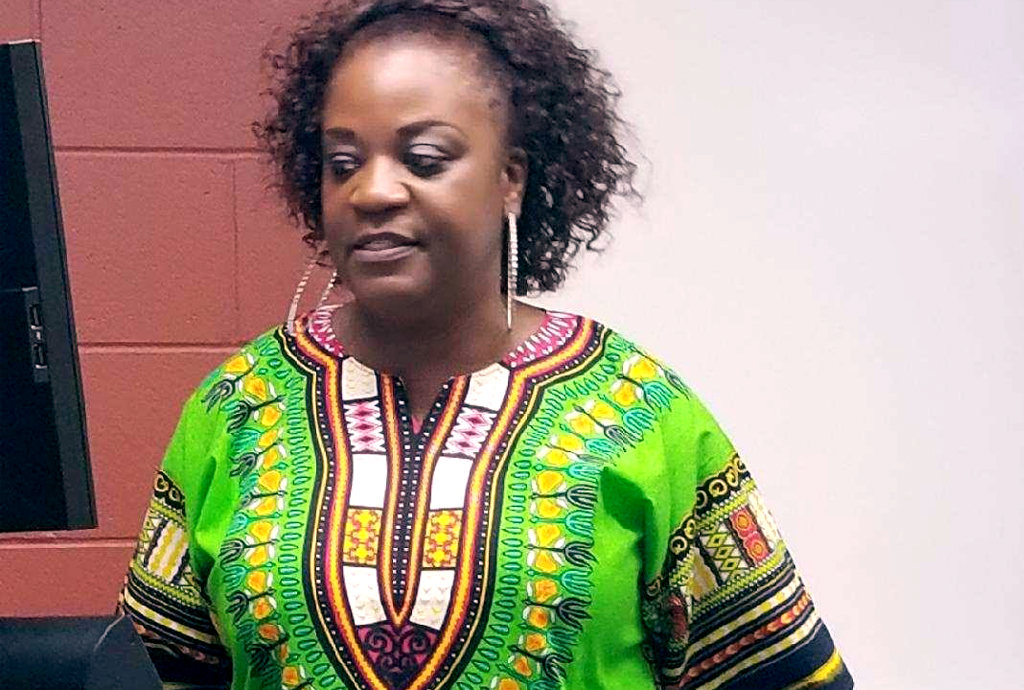
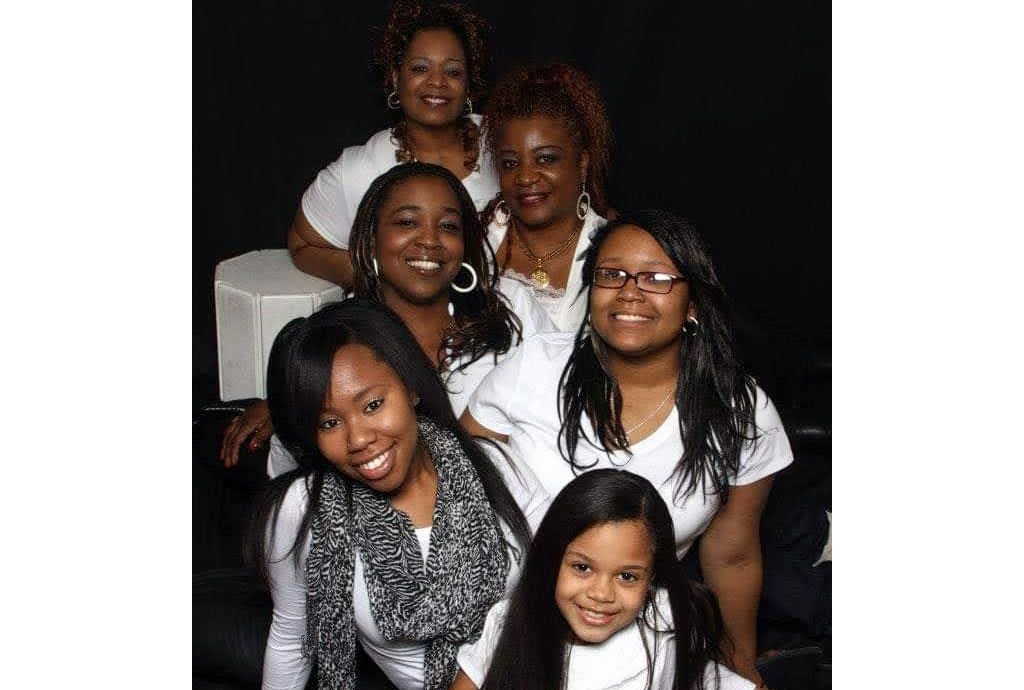
Going forward, Latisha continues to be an advocate and work to break mental health stigma. The mission is both professional – and personal.
“My mom was part of that migration [of African Americans] from the south to the north,” she says. “My family landed in Chicago, Illinois. There’s that stigma from growing up that you don’t trust the system. That whole Tuskegee [study]. There’s less of that now, but it’s still very much prevalent. My aunt was in her 70’s and she’d never had a mammogram because she just didn’t trust [doctors].”
“I was determined to break that stigma in my immediate family with my adult children and grandchildren. I’m 61 years old and for the whole time that I’ve worked for Cope I’ve been the ‘town crier’ for mental health in my family.”
Most recently, Latisha has advocated for a loved one who is struggling with mental health issues.
“I’ve never stopped fighting for them,” she says. “It’s been the last three years of their life. I celebrate them and their accomplishments every time. I will never abandon them. They’re one of the shining lights of my life and they’re one of the reasons why I continue to do this work because I now know what it feels like [for Cope clients] to have a family member who has these struggles.”
Looking back, “I’ve come a long way," Latisha says. "At 17, I was homeless and pregnant. Working for Cope has brought it full circle for me. No one can go through all that without being affected. To this day I still have a therapist that I see every other week.”
When asked what people should take away from her story, Latisha says, “I think it’s important for people to be aware that there’s a lot of mental health stigma in the African American community and distrust in the medical system. Just have that awareness of who you’re dealing with and why they might be resistant. A lot of that stigma has carried over generationally. I would want people to understand where that stems from.”
To mental health providers who are working with people who have distrust or stigma she says, “Don’t give up trying. Put yourselves in their shoes.”